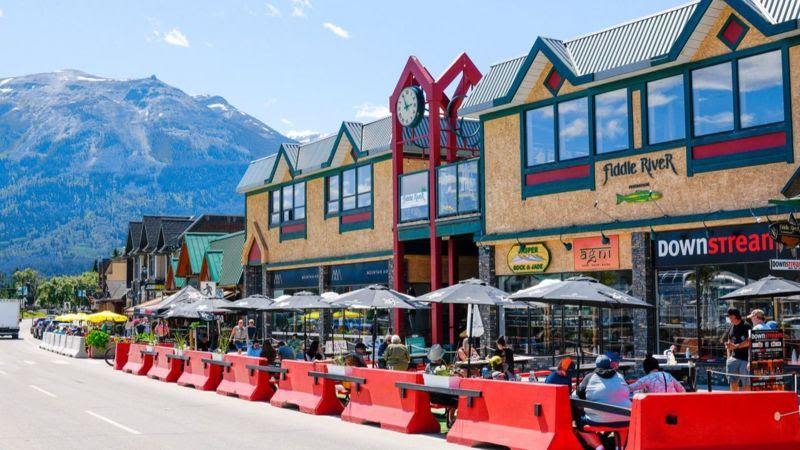Search results
News about California, Canadian, wildfire
Also in the news
A home fire inspection — or a fire safety inspection — ensures that the proper precautions are in place to avoid house fires. The inspector will look for smoke alarms and fire extinguishers, potential fire hazards and physical obstructions.
Fire safety should be top-of-mind for all business owners if they own a food truck, bakery, retail shop, office space or other property. Keep your employees and business safe by following these ten simple tips for fire safety in the workplace.
A house fire is a traumatic event, no matter the size. Learn what steps to take and how to talk with an insurance adjuster after a house fire.
Your homeowners insurance policy may protect your home (including sheds, free-standing garages, and fences) and personal property against damage from an electrical fire, a fire pit or fireplace mishap, or other accidental fires. Policies may also cover damaged trees, shrubs, plants, or landscaping.
Start a Fire and Theft with CAC quote and protect your commercial vehicles today. Or, call 1-888-806-9598. Protect your heavy truck with Fire and Theft Insurance with CAC from Progressive. Learn about how this Specified Perils insurance can cover damages by specific, non-collision incidents.
Commercial property insurance protects your movable property and business location from risks like fire, theft, vandalism, and other incidents. Commercial property can include buildings, equipment, and inventory that your business rents or owns.
A fire extinguisher is a handheld fire protection device used to extinguish and control small fires. Fire extinguishers can save lives and property if you know how to use them correctly.
There are five fire extinguisher classes. The type you need depends on the source of the fire. Class A. Class A fire extinguishers are the most common type. They can put out most household fires, including those burning paper, wood, cloth, rubber, and certain plastics.
Physical Damage is a general term for a group of insurance coverages that protect your vehicle. This general term includes Collision insurance, as well as your choice of full Comprehensive insurance or the more limited Fire and Theft with Combined Additional Coverage (CAC) insurance.
Learn about what causes a car to catch on fire, including electric vehicle fires, and how to prevent your car from catching on fire in the first place.
Certain insurers will charge higher rates due to the increased risk of the peril of fire based on having a fireplace. If you're considering buying a home that has a fireplace, or if you want to install a wood-burning stove in your home, it could raise your home insurance rate.
General liability insurance offers a variety of coverages to protect your small business, but it doesn’t cover everything. Learning what general liability insurance covers and how much you need will give you the confidence that you’re insuring your business properly.
It can take less than five minutes for fire to overwhelm your home and threaten the safety of your family. While most insured homes are protected with a standard home policy, it's important to practice fire prevention methods.
While not legally required, LLCs might need general liability insurance to fulfill certain contracts, such as a lease. Regardless, it’s a good idea to have a general liability policy to protect against lawsuits and expensive claims against your business. Learn more about business insurance for LLCs.
Many insurers don’t offer homeowners insurance in fire-prone areas or exclude coverage for wildfire damage. If you’re unable to obtain coverage from a private company, you may be able to get insurance from your state’s FAIR (Fair Access to Insurance Requirements) plan.
Your car insurance may cover fire damage to your vehicle depending on what caused the fire and the coverages you carry. Generally, you'll need comprehensive and collision coverage to cover any fire-related damage to your vehicle.
Garagekeepers Legal Liability insurance provides protection in case a vehicle is damaged by fire, theft, vandalism or collision. Garagekeepers Legal Liability coverage is an optional coverage designed for business owners who offer towing services or operate service stations.
Dwelling coverage may pay to repair or rebuild your house caused by fire, severe weather, falling trees, ice dams, and other covered perils. Example: You may be protected if your roof caves in from the weight of ice, snow, or sleet, damaging interior components such as walls, kitchen cabinets, and countertops.
Condo insurance may cover your condo and personal belongings against fire damage, as fire is a covered peril on standard condo policies. However, because a condominium is a shared living environment, coverage against fire may be complicated regarding the shared areas in your condo complex.
Dwelling coverage (often called Coverage A on a homeowners or condo insurance policy) is one part of your home insurance policy that covers your house, including an attached garage, countertops, flooring, and built-in appliances. If your home is damaged by a covered peril, your policy’s dwelling ...
Comprehensive insurance coverage pays for damage caused by events considered to be outside of your control, like theft, vandalism, hitting an animal, glass breakage, fire, and weather-related incidents (e.g., hail).
Example: There's a fire in your home, and you can't stay there for two weeks while it is being repaired. If you spend $1,000 eating out, loss of use may cover the food bill beyond what you normally spend, and your rent/hotel expenses.
Learning how to yield to emergency vehicles is a necessary skill. When an emergency vehicle is approaching you, the National Highway Traffic Safety Administration (NHTSA) recommends following their “SIREN” method. S Stay alert.


